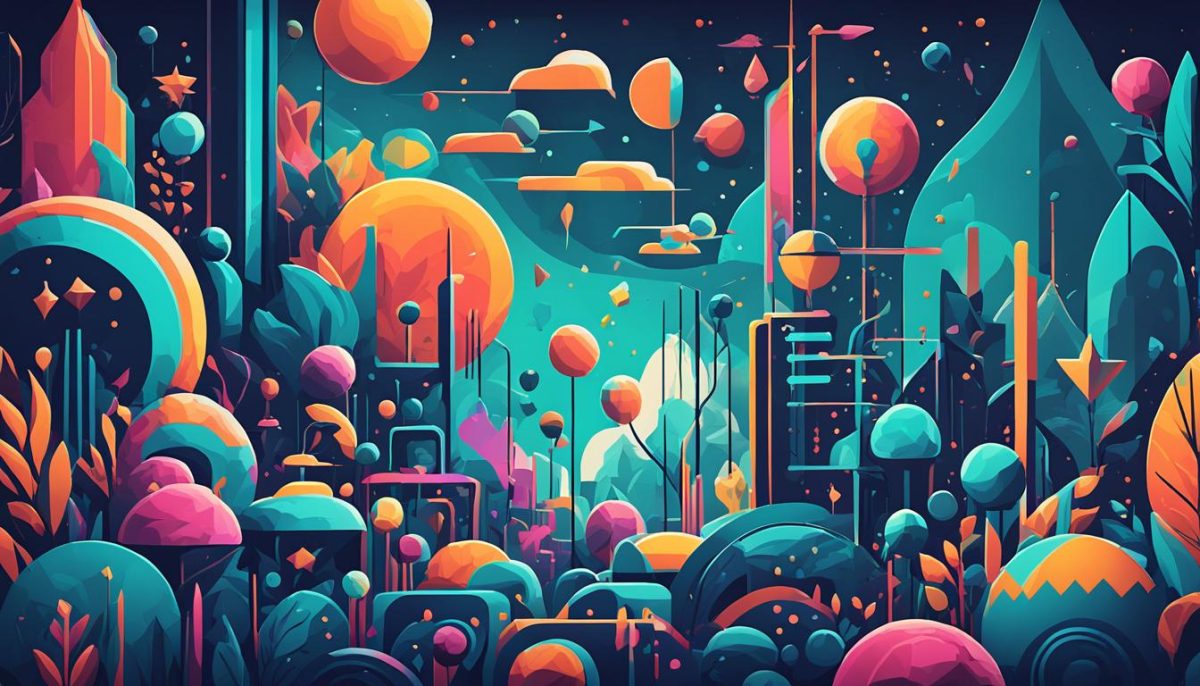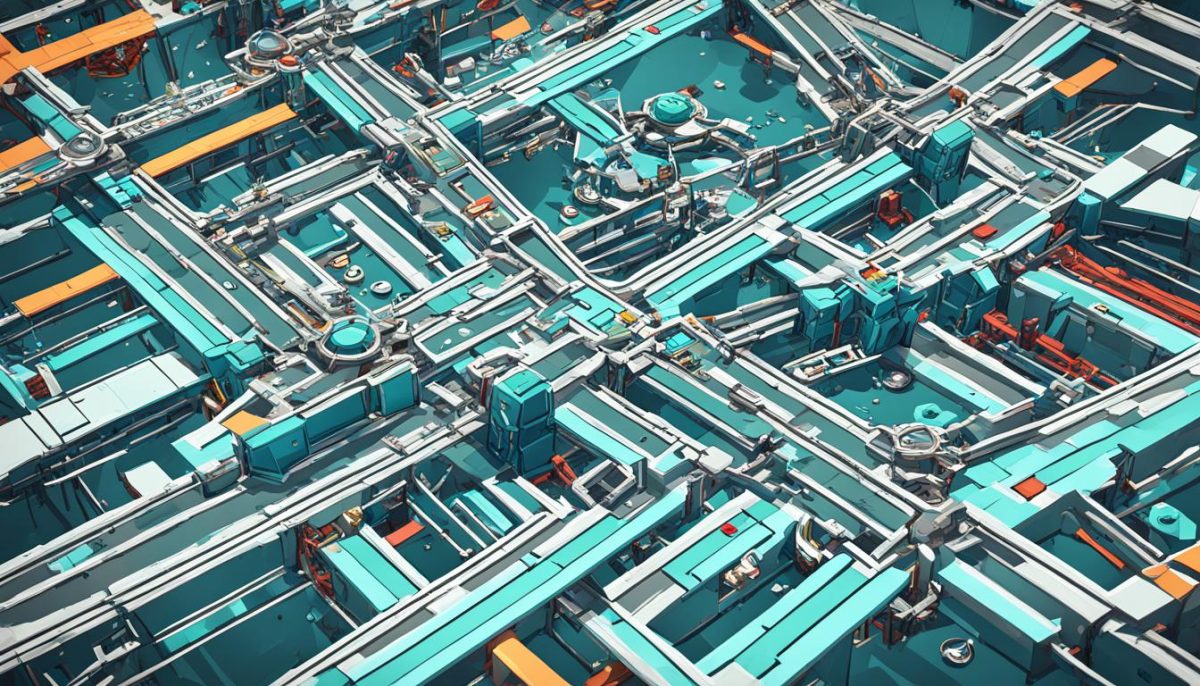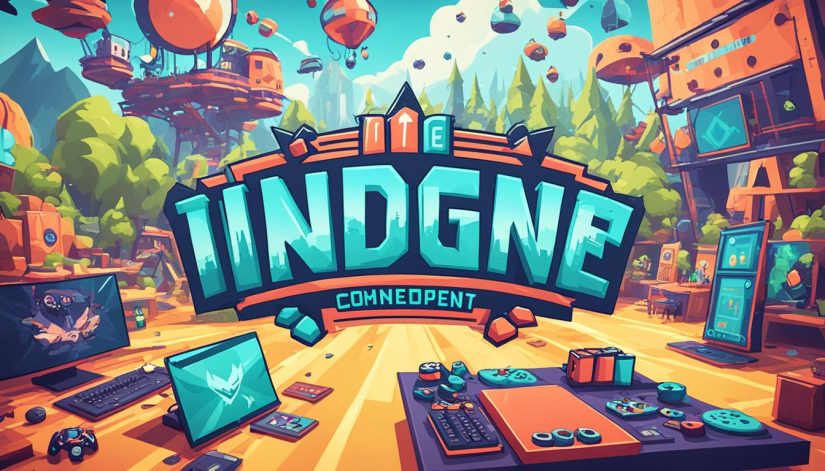Welcome to our exploration of the fascinating world of indie games! In this section, we will delve into the definition of an indie game and uncover the unique characteristics that set them apart from mainstream titles.
Indie games have had a profound impact on the gaming industry, bringing fresh perspectives and innovative gameplay mechanics to the forefront. Unlike their mainstream counterparts, indie games offer developers the freedom to step outside the boundaries and embrace their creative vision without the constraints of commercial success.
So, what exactly classifies a game as indie? It’s the beautiful synergy of independent developers, self-publishing, and the involvement of small teams that define the essence of an indie game. These games prioritize artistic expression and innovation over monetary gains, creating a vibrant and diverse landscape within the gaming industry.
As you delve deeper into our exploration, you’ll discover the unconventional gameplay, niche themes, and experimental mechanics that make indie games truly unique. We’ll showcase how indie games often venture into uncharted territories, fearless in their pursuit of pushing boundaries and captivating players with their sheer creativity.
But the magic of indie games doesn’t stop there. This section will also shed light on how indie game development grants developers the creative freedom they need to express themselves fully. With complete control over their projects, indie developers can take risks, explore new ideas, and collaborate with like-minded individuals to create truly extraordinary experiences.
So, join us on this exhilarating journey as we peel back the layers of indie game development, immersing ourselves in a world where creativity knows no bounds. Together, we will uncover the essence of what makes a game truly indie.
The Definition of an Indie Game
When it comes to indie games, there’s more than meets the eye. These games are the brainchild of independent developers who aren’t afraid to push boundaries and break free from the shackles of mainstream gaming. In this section, we take a closer look at what truly defines an indie game.
The Power of Independent Developers
One of the key factors that sets indie games apart is the involvement of independent developers. Unlike big-budget studios backed by major publishers, indie game developers operate on their terms, with the creative freedom to bring their visions to life. This autonomy allows for unique and unconventional gameplay experiences that often defy industry norms and expectations.
Self-Publishing and Small Teams
Another defining characteristic of indie games is their self-publishing approach. With the rise of digital distribution platforms and crowdfunding, indie developers have the opportunity to bypass traditional publishing channels and release their games directly to the public. This direct connection between developers and players encourages a more intimate and personal gaming experience.
Additionally, indie games are typically developed by small teams, where each member wears multiple hats. This close-knit collaboration fosters creativity and allows for more focused attention to detail. It’s this tight-knit environment that often gives indie games their distinct charm and personality.
Independent developers are the unsung heroes of the gaming industry, tirelessly working against the odds to craft experiences that captivate and inspire players. Their dedication fuels the spirit of innovation within the gaming landscape.
Prioritizing Artistic Expression over Commercial Success
Unlike mainstream titles driven by profit margins, indie games prioritize artistic expression and innovation above all else. Independent developers aren’t bound by market demands or shareholders’ expectations. Instead, they embrace the freedom to experiment with unique mechanics, unconventional narratives, and thought-provoking themes.

This commitment to artistic expression is what makes indie games so special. It’s a celebration of creativity and a testament to the power of individual voices within the gaming industry.
The Unique Characteristics of Indie Games
When it comes to indie games, one thing that sets them apart is their dedication to innovation. Indie developers thrive on pushing the boundaries of what’s considered conventional in the gaming industry. This drive for innovation leads to unconventional gameplay and experimental mechanics that you won’t find in mainstream titles.
Imagine playing a game where the mechanics break free from the mold, challenging your expectations at every turn. This type of unconventional gameplay is what indie games excel at. Whether it’s using unique controls, non-linear storytelling, or even defying genre conventions, indie games never shy away from trying something different.
“Indie games give us the freedom to bend the rules and invent new ones. It’s a playground where we can experiment with mechanics and gameplay concepts that may seem unconventional or risky.”
But it’s not just gameplay mechanics that set indie games apart. These games often tackle niche themes that mainstream titles may not explore. From deeply personal stories to thought-provoking social commentary, indie games have the power to address unique and underrepresented narratives.
Moreover, indie games embrace innovation not only in the gameplay but also in the artistry and storytelling. The visuals and sound design in indie games are often crafted with meticulous attention to detail, creating immersive experiences that transport players into new worlds.

Take a moment to appreciate the ingenuity behind the experimental mechanics in indie games. This image beautifully encapsulates the essence of indie game development – pushing the boundaries, taking risks, and embracing unconventional ideas. Just like these mesmerizing gears, indie games are intricate and fascinating in their execution.
By fostering a community of creative individuals, indie games continue to challenge the status quo and bring fresh perspectives to the gaming industry. So the next time you find yourself browsing through a collection of indie games, keep an open mind and prepare to embark on a journey of imagination and innovation.
| Indie Game Features | Mainstream Game Features |
|---|---|
| Unconventional gameplay mechanics | Traditional gameplay mechanics |
| Experimental storytelling | Formulaic storytelling |
| Niche themes and underrepresented narratives | Popular and widely appealing themes |
| Innovative artistry and sound design | Polished but often conventional artistry and sound design |
Embracing Creative Freedom in Indie Game Development
Indie game development is a realm where creative control thrives. As indie developers, we have the power to bring our wildest ideas to life, free from the constraints often found in mainstream gaming. This level of freedom allows us to take risks and push the boundaries of what’s considered conventional, creating unique and innovative gaming experiences.
One of the key advantages of indie game development is the ability to have full creative control. Creative control is the driving force behind our games, enabling us to fully express our artistic vision and bring our ideas to fruition without interference. With no external pressures to conform to market trends or investor demands, we can explore uncharted territories and experiment with mechanics, art styles, and narrative themes.
This willingness to take risks sets indie games apart. By risk-taking, we venture into unexplored territory, defying genre expectations and challenging players to think outside the box. Whether it’s embracing unconventional gameplay mechanics or tackling controversial themes, the indie game community thrives on breaking boundaries and delivering experiences that are bold, thought-provoking, and distinctive.
Moreover, indie game development encourages creative collaboration. The indie scene is a melting pot of talented individuals who come together to share their expertise, exchange ideas, and collaborate on projects. Through this collaborative effort, we not only enhance our own skills but also push the entire industry forward. By fostering a culture of mutual support and inspiration, indie game developers create a community that values innovation and encourages the pursuit of creative excellence.

